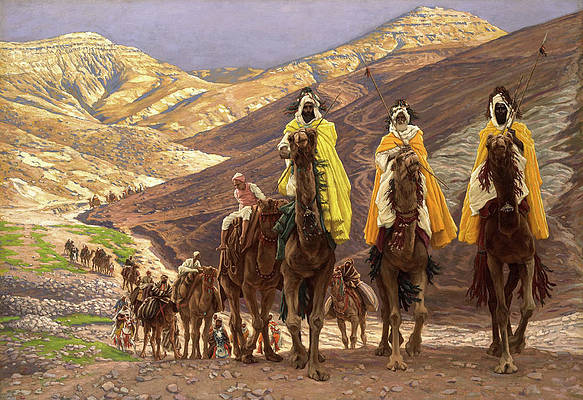Epiphany Sunday
Here’s a Joseph Brodsky poem to mark the moment when the wisdom of the east recognizes that divinity has entered the world. Nor is it only wisemen or kings that arrive at this realization. An epiphanic awakening occurs when anyone discovers that even the most humble of homely objects–Brodsky mentions crockery, farm tools, and a cowbell–contain a spark of the sacred. I use the word “homely” to connect the idea with the poem’s theme of homelessness.
Brodsky himself experienced homelessness as a Jewish poet expelled from the Soviet Union, and perhaps we all feel homeless in those moments when the world appears alien to us. When Brodsky tells us to “imagine the desert—but the desert is everywhere,” I think of Robert Frost’s desert places, which I wrote about recently for the winter solstice post. When we are in a grip of desert depression, divinity seems impossibly far away.
Which Brodsky captures by imagining God Himself stranded in distance and darkness. God only becomes aware of the “cold cracks in the floor, the blankness of hunger,” the poet imagines, when, as spirit made incarnate, he experiences the world through us.
In Brodsky’s version, the epiphanic awakening doesn’t happen all at once but gradually—a match lit in a midnight cave. There is no peal of a celestial bell to celebrate the triumph of love over death with Jesus’s birth: we are told the baby has not yet earned it. Nevertheless, the “three beams closing in/ And in on the star” sounds as though wisdom if fumbling towards the epiphany, even though it’s not there yet.
It comes when we realize, fully, that divinity is all around us and within us. Our challenge is to open ourselves to it.
Nativity Poem
By Joseph Brodsky
Imagine striking a match that night in the cave:
Imagine crockery, try to make use of its glaze
To feel cold cracks in the floor, the blankness of hunger.
Imagine the desert – but the desert is everywhere.
Imagine striking a match in that midnight cave,
The fire, the farm beasts in outline, the farm tools and stuff;
And imagine, as you towel your face in the enveloping folds,
Mary, Joseph, and the Infant in swaddling clothes.
Imagine the kings, the caravans’ stilted procession
As they make for the cave, or, rather, three beams closing in
And in on the star, the creaking of loads, the clink of a cowbell;
(No thronging of Heaven as yet, no peal of the bell
That will ring in the end for the infant once he has earned it).
Imagine the Lord, for the first time, from darkness, and stranded
Immensely in distance, recognizing Himself in the Son
Of Man: His homelessness plain to him now in a homeless one.


